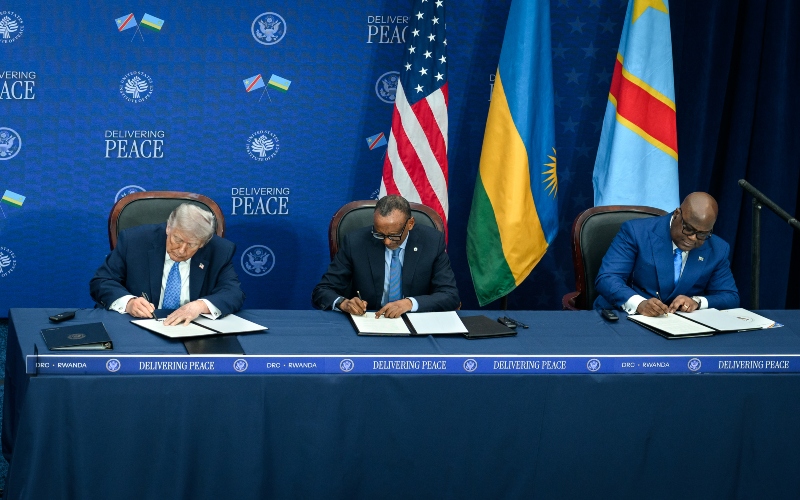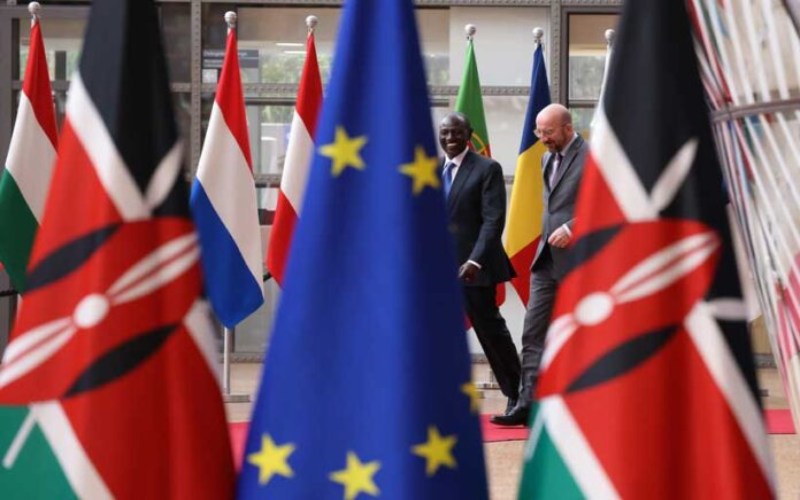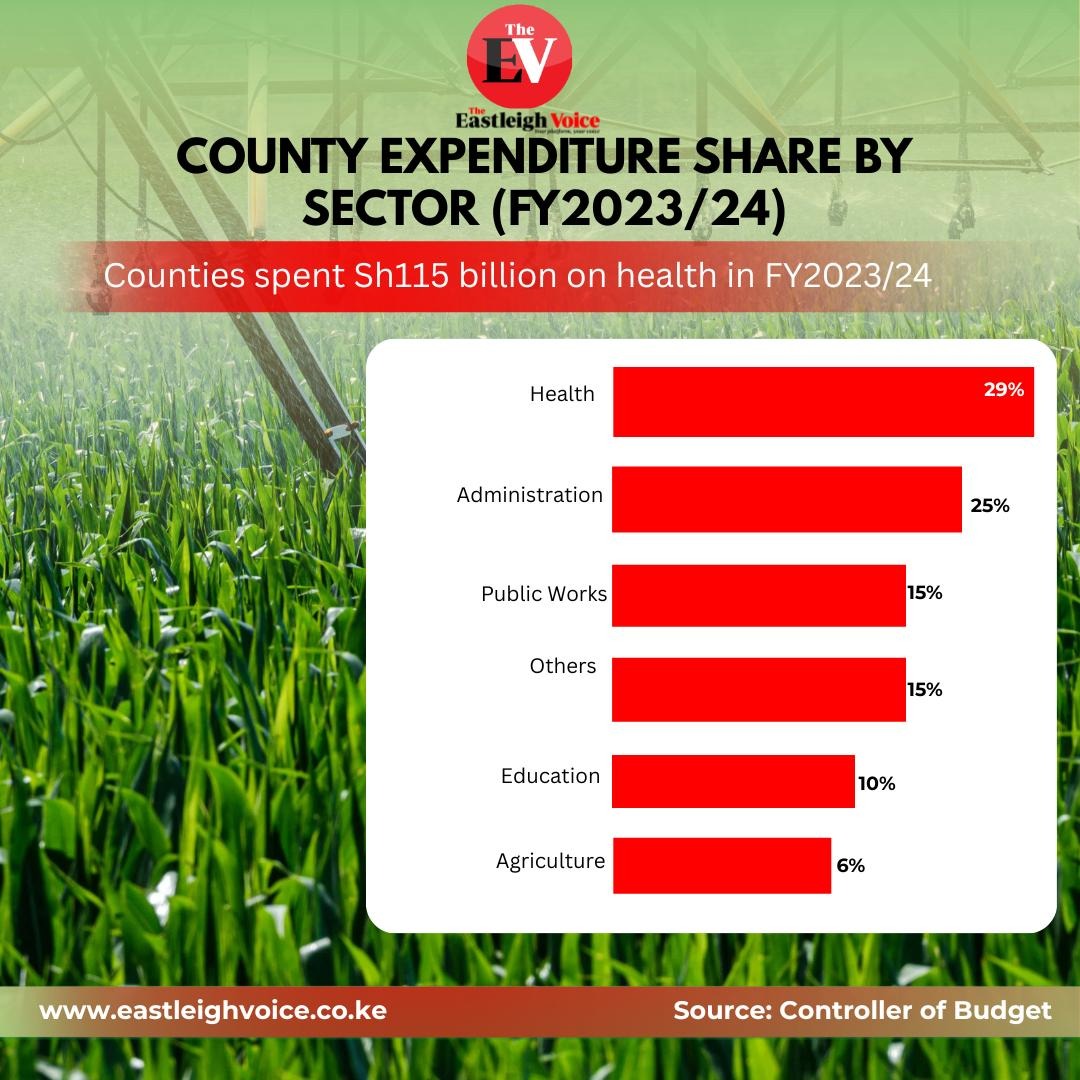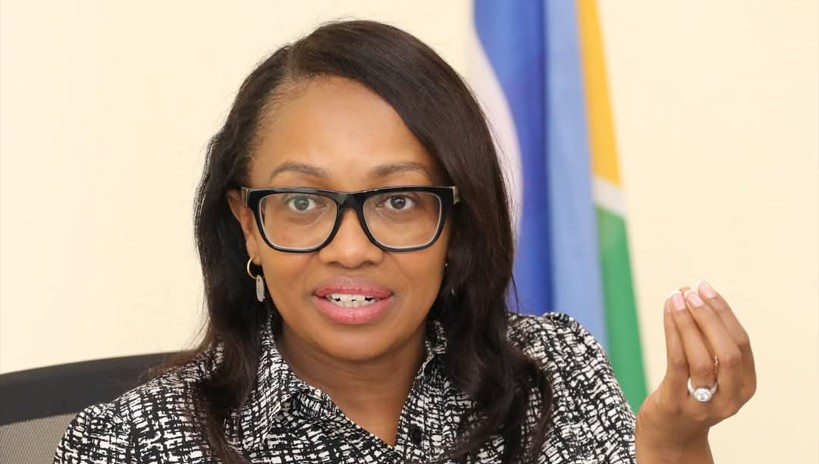Trump’s 30 per cent tariff on South Africa not backed by trade data — Ramaphosa

Additionally, Trump warned that any retaliatory tariff hike by South Africa would be met with an equivalent increase on top of the already imposed 30 per cent duty.
South African President Cyril Ramaphosa has dismissed the United States' decision to impose a 30 per cent tariff on imports from South Africa as an inaccurate reflection of existing trade data.
US President Donald Trump announced the new tariff in a letter addressed to Ramaphosa on Monday, noting that South African imports will be subjected to 30 per cent tariffs effective August 1, 2025.
More To Read
- How Africa should reimagine its trade future upon AGOA’s expiry in September - experts
- US announces withdrawal from UNESCO again, citing "misalignment with national interests"
- Why is Trump meeting five African presidents this week?
- US threatens South Africa with 30 per cent tariff on all exports amid BRICS alignment concerns
- Trump bans travel to US by nationals from 12 countries including Somalia, Sudan and Congo
- Trump administration halts scheduling of new student visa appointments
Trump's letter to Ramaphosa was one of several he posted on his Truth Social page on X on Monday. He sent almost identical letters, with different tariff rates, to the leaders of Japan, South Korea, Myanmar, Laos, Kazakhstan and Malaysia.
"We have had years to discuss our trading relationship with South Africa, and have concluded that we must move away from these long-term, and very persistent, trade deficits engendered by South Africa's tariff and non-tariff policies and trade barriers," the letter reads.
"Our relationship has been, unfortunately, far from reciprocal. Starting on August 1, 2025, we will charge South Africa a tariff of only 30 per cent on any and all South African products sent to the United States, separate from all sectoral tariffs."
Additionally, Trump warned that any retaliatory tariff hike by South Africa would be met with an equivalent increase on top of the already imposed 30 per cent duty.
"If you wish to open your heretofore closed trading markets to the United States, and eliminate your tariff and non-tariff policies and trade barriers, we will, perhaps, consider an adjustment to this letter," he said.
"These tariffs may be modified, upward or downward, depending on our relationship with your country. You will never be disappointed with the United States of America."
Trump first announced a 30 per cent tariff on South African imports in April under his global "reciprocal" trade policy, but later paused the move for 90 days to allow room for bilateral talks. The pause was set to expire on July 9, but on Monday, Trump extended the deadline to August 1.
In a rejoinder on X on Tuesday, Ramaphosa maintained that the tariff was based on a "contested interpretation" of the trade balance between South Africa and Washington, currently under review by bilateral negotiating teams.
"This 30 per cent tariff is based on a particular interpretation of the balance of trade between South Africa and the United States. This contested interpretation forms part of the issues under consideration by the negotiating teams from South Africa and the United States," Ramaphosa said.
"Accordingly, South Africa maintains that the 30 per cent reciprocal tariff is not an accurate representation of available trade data. In our interpretation of the available trade data, the average tariff on imported goods entering South Africa stands at 7.6 per cent."
Further, Ramaphosa noted that while the US accuses South Africa of maintaining unfair trade advantages, figures show that 77 per cent of US goods already enter South Africa duty-free, and 56 per cent of all imports are subject to no tariffs.
The South African President, however, welcomed Washington's willingness to revise the tariff once negotiations conclude.
"We welcome the commitment by the US government that the 30 per cent tariff is subject to modification at the conclusion of our negotiations with the United States. South Africa has continued to engage the United States, most recently at a meeting held on the sidelines of the US-Africa Summit on June 23, 2025, in Luanda," he said.
Ramaphosa subsequently directed the South African negotiating team to urgently re-engage the US based on a Framework Deal submitted on May 20. The proposal addresses U.S. concerns over trade imbalances and alleged unfair practices.
"South Africa will continue with its diplomatic efforts towards a more balanced and mutually beneficial trade relationship with the United States," Ramaphosa said.
Top Stories Today











































